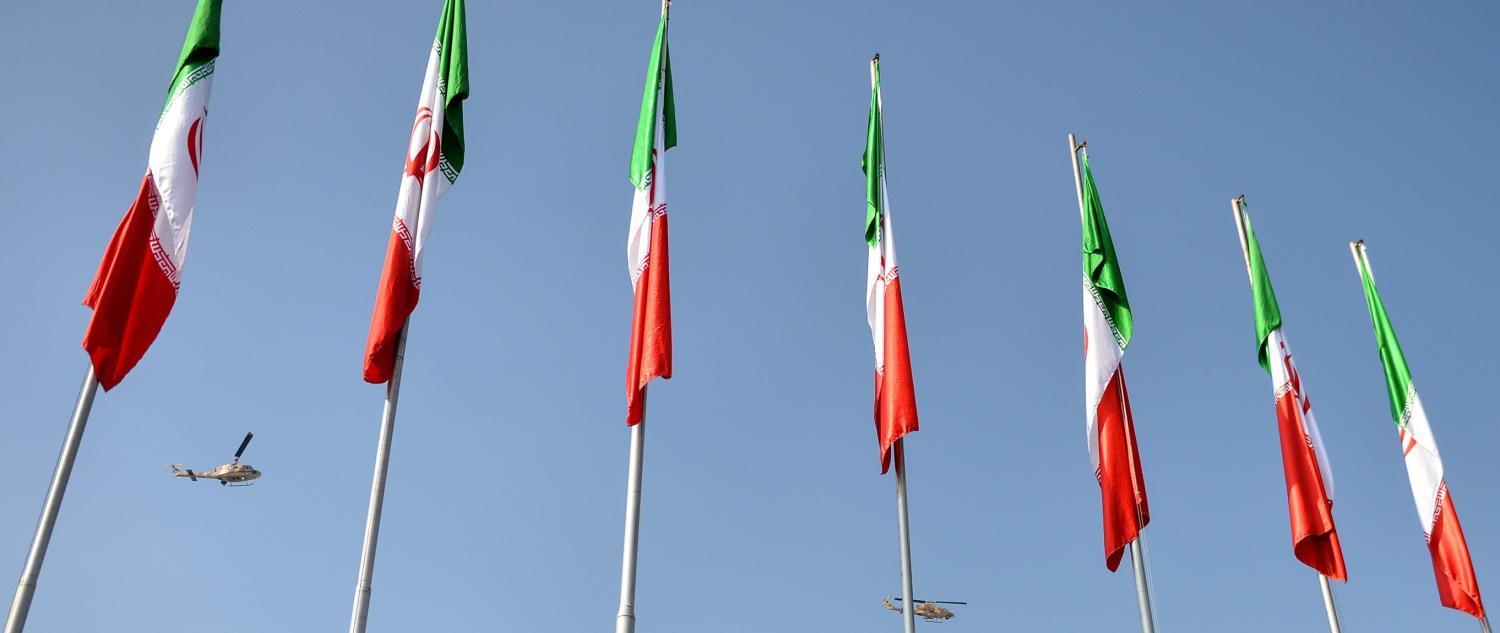The deadline looms for the Iran nuclear deal. US President Donald Trump will have to decide by 12 May whether to continue to waive sanctions against Iran under the Joint Comprehensive Plan of Action (JCPOA).
What Trump will do is unclear, and his intention was clouded even more by unscripted remarks last week alongside French President Emmanuel Macron. Trump offered this cryptic or incomprehensible (decide for yourself) series of comments:
But there is a chance – and nobody knows what I’m going to do on the 12th, although, Mr President, you have a pretty good idea – but we’ll see. But we’ll see also, if I do what some people expect, whether or not it will be possible to do a new deal with solid foundations. Because this a deal with decayed foundations. It’s a bad deal. It’s a bad structure. It’s falling down. Should have never, ever been made. I blame Congress. I blame a lot of people for it. But it should have never been made, and we’re going to see what happens on the 12th.
The terms and conditions of the JCPOA are complex, and the reactions from Iran and other signatories to the deal in response to Trump’s upcoming decision are difficult to predict. But the complexity of the deal and the politics surrounding it are well explained in this article by one of the US negotiators, published at the time the deal was forged.
Trump lacks knowledge of international affairs but prides himself on knowing about “deals”. He has always been on record as deriding the JCPOA, and he has the Europeans (co-signatories who want to honour the agreement) sweating on finding ways to allow him to claim he has won a better outcome.
Public posturing has taken on a harder tone as the May deadline draws closer. On Monday, Israeli Prime Minister Benjamin Netanyahu delivered a theatrical live presentation in which he claimed to have a half-tonne of documents outlining Iranian perfidy over the nuclear issue dating back to 2003.
The timing of these revelations is somewhat fortuitous, coming only days before decision time in Washington and just after the International Atomic Energy Agency (IAEA) and US State Department both noted Tehran’s ongoing compliance with the JCPOA. The accuracy of Netanyahu’s prognostications about who poses a threat to the region should be viewed with circumspection, as one of his previous forays into trying to influence US Middle East policy attests.
Iranian President Hassan Rouhani and Minister of Foreign Affairs Mohammad Javad Zarif have both condemned Trump’s approach. They also floated the prospect of Iran declaring themselves no longer bound by the agreement if Trump refuses to waive the sanctions. Such a declaration would have enormous consequences and would add fuel to an already combustible Middle East.
Regardless of what transpires, Iran is right to be perplexed and angry at the potential course of events unfolding. As recently as April, both the IAEA and US State Department confirmed that Tehran is complying with its side of the deal.
Nevertheless, the White House doesn’t like it (in part because it was a signature achievement of President Obama) and, in what passes for justification nowadays, therefore doesn’t feel itself bound to honour the agreement in its current form.
Even if it wanted to, Iran couldn’t renegotiate the deal. Rouhani and Zarif spent all their domestic political capital in getting the JCPOA signed in the first place. Even the world’s best politician could not justify to their constituency the renegotiation of a deal their country is adhering to simply because the new president of another country doesn’t like the existing deal.
Perhaps this posturing by the White House is part of a campaign to deny Tehran the benefits of the agreement by destroying confidence in it, while stopping short of actually withdrawing from the deal.
If Trump continues to trash-talk the JCPOA, he will create a constant atmosphere of uncertainty. And business investment hates uncertainty.
As this article shows, foreign banks’ risk aversion to exposure in Iran has already led financial institutions to adopt “over-compliance” measures that effectively limit the ability of companies to invest in the country.
The existing sanctions regime and related nervousness on the part of institutions to run afoul of the US Treasury’s Office of Foreign Asset Control has been exacerbated by Trump’s trash-talking of the JCPOA and his appointment of two conservative anti-Iran hardliners in Secretary of State Mike Pompeo and National Security Adviser John Bolton. Together, this has done nothing to help deliver what Rouhani hoped for – the economic benefits of the JCPOA.
Trump may kill the deal on 12 May. But the reality is that his actions to date have already served to critically, if not mortally, wound it.

